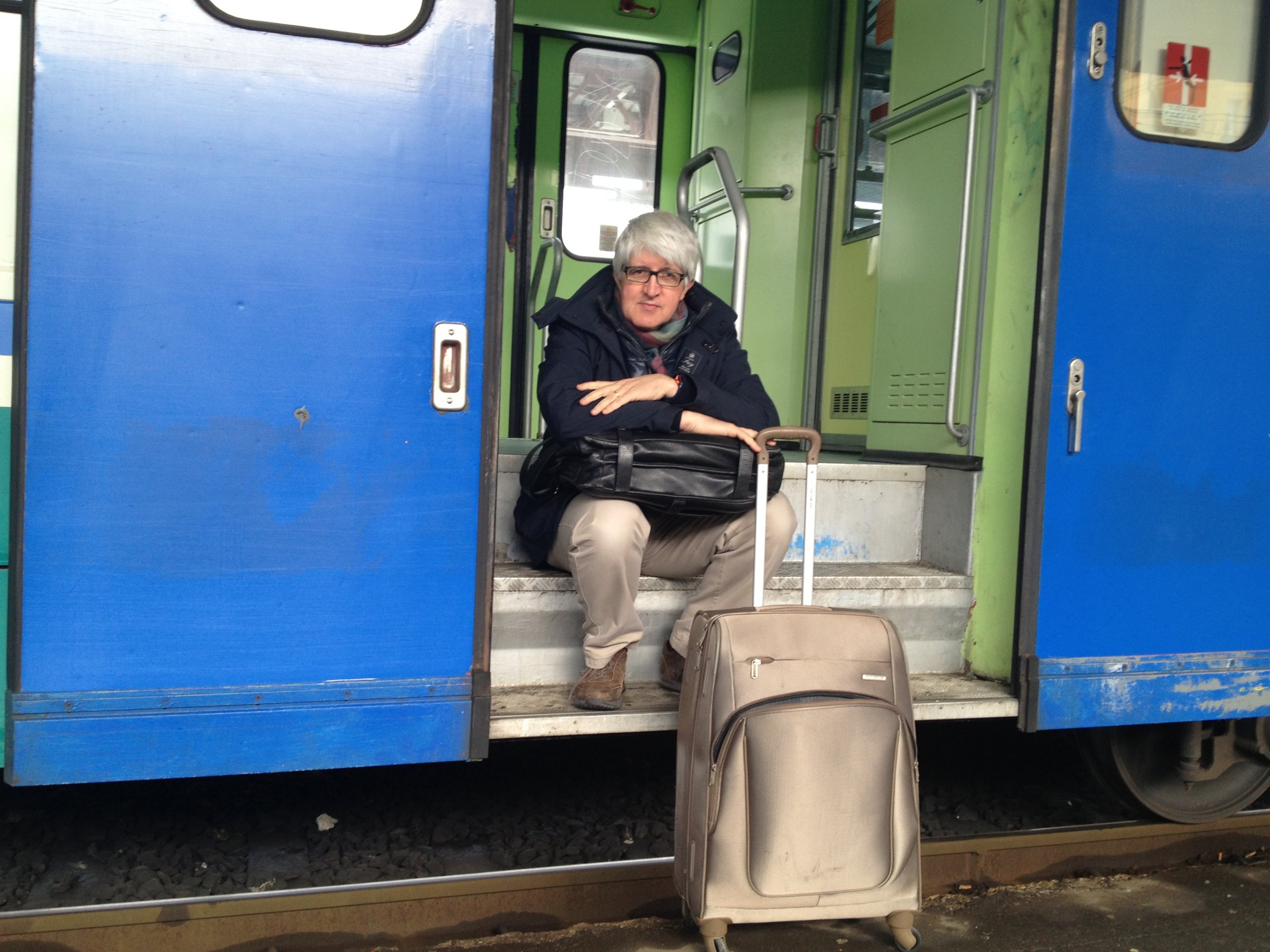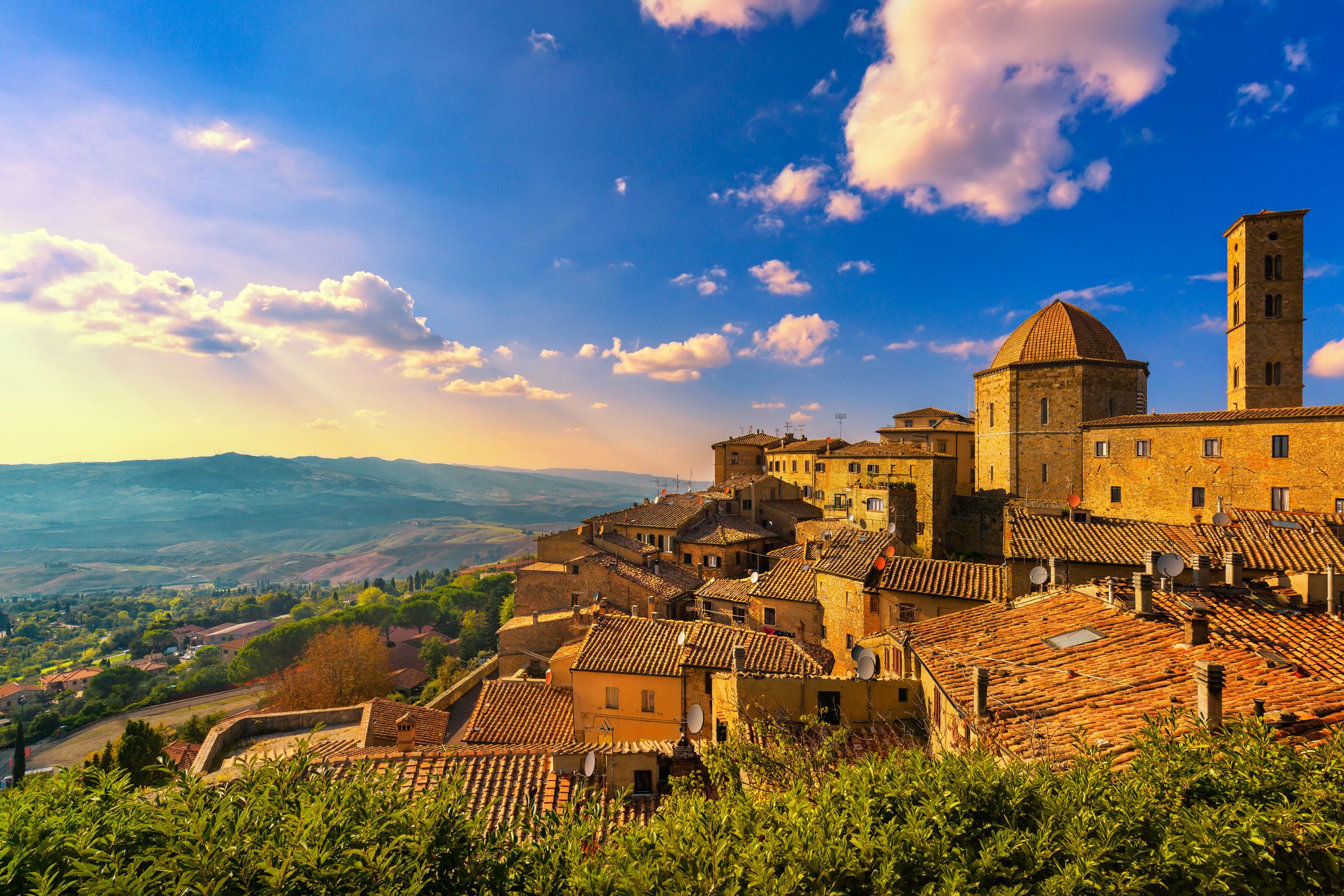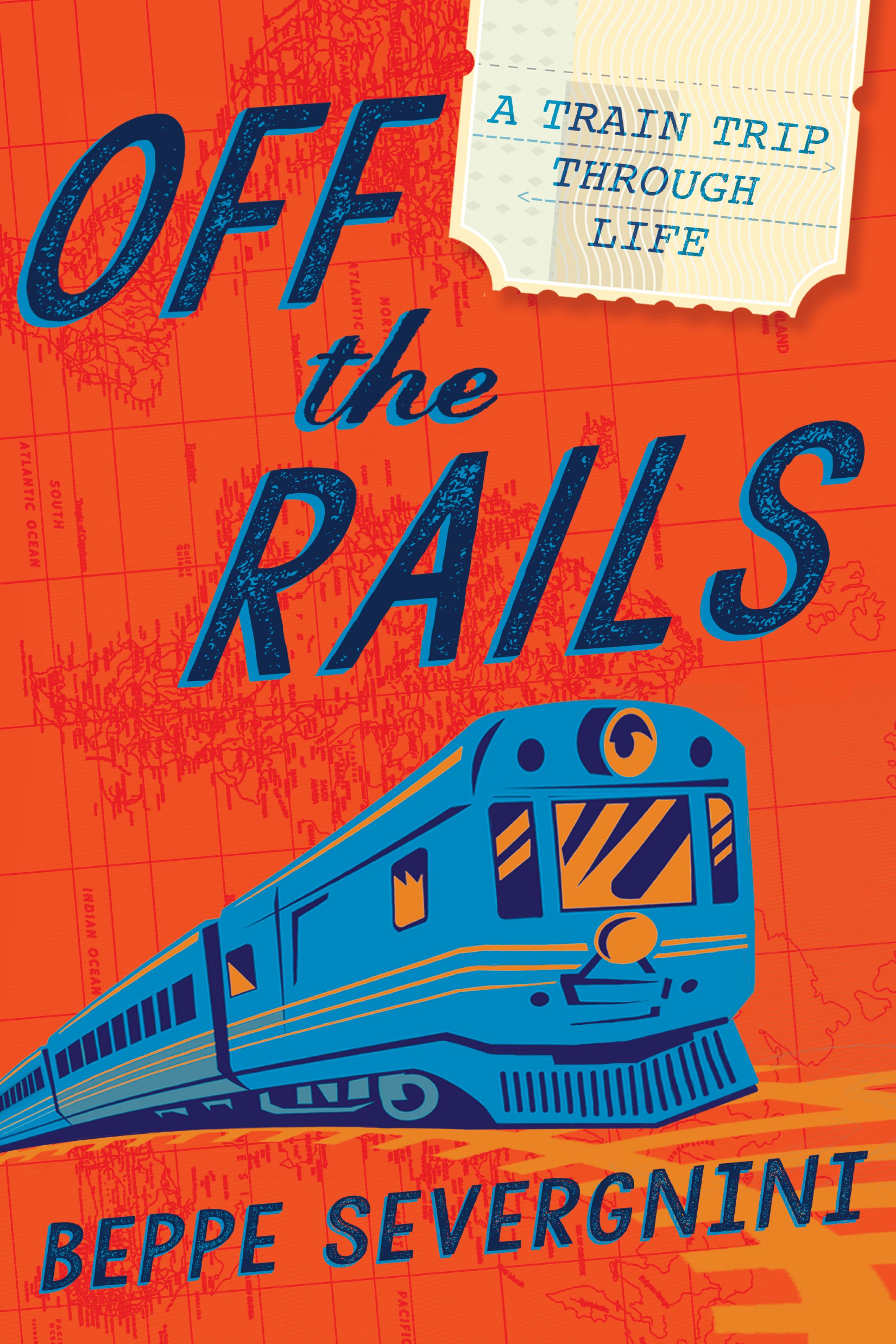There are two teenagers at the Trieste train station, the boy dressed as a cowboy, the girl as a squaw. They are lovely and absurd on this cold, dark winter morning. They’re buying tickets to Venice. It’s Fat Tuesday, and Alice and Nicola, thirty-five years old between them, want their piece of Carnival.
Trieste constitutes an ideal point of departure for my journey across my country. It is proudly Italian (we fought World War I to get it back from Austria), but it also feels Slavic (Slovenia is a few miles away). It looks German (it used to be the main harbor of the Austro-Hungarian Empire). It is Christian and it is Jewish. It faces the blue Adriatic sea, with the green Carso mountains at the back. It’s the North of the South, the South of the North, the East of the West, and the West of the East.

The author on the train in Mantua, Italy.
Beppe Severgnini
I’m starting my journey here, in Italy’s northeastern corner, and ending it in Trapani, Sicily. The furthest in Italy you can get. From quasi-Germany to near-Africa. The whole way by train, in second class seats. When I tell my fellow passengers, they shoot me a glance that contains a mixture of surprise, pity and envy. It’s faster if you fly!, their eyes say. True. But Italy is a boot-shaped mystery, worth exploring; and every Italian, at least once in his or her lifetime, ought to travel the whole length of the country.
And I have never done it before. I’ve crossed Europe, America, Siberia and Australia by train; not my own country. I’ve been almost everywhere in Italy, but there was no pattern. An assignment, a vacation, a short trip, a wedding, a visit to a friend or a relative – I’ve seen hundreds of individual places. But I never took the time to cross my own country. So I decided to do it, slowly, taking my time, watching the everchanging land of Italy. I’ll forget I’m a professional journalist, this time. Not an in-depth investigation; just a little taste of what I’ve been missing.
“I travelled among unknown men,” wrote William Wordsworth. He came across them “in lands beyond the sea”; I’m going to meet them on a train in my own country, which – believe me – can be just as mysterious.
***

The Italian countryside
Getty
What is Italy? Is it an inferno, as some suspect, or a demon-speckled paradise? I’d say it was a pretty-looking purgatory, full of contented, tormented souls. The train is the perfect place to meet with them, listen to them, talk to them, understand what makes them tick. In Italy politics – even in times like these – is only background noise. We’ve seen so much for too long – rulers from Rome, from Greece, from Africa, from Germany and America; imperious priests and pious emperors; departing crusaders and incoming invaders; politicians of every shape and kind, from the Borgias to Berlusconi – to be overwhelmed by populism, politics and politicians.
Yes, this is my advice to my foreign readers: take a slow train, and let the Italians do the job. We’ll probably talk too much, look the way you’re dressed, ask unusual questions, invite you to share a drink or a coffee (standing, of course). But, in the meantime, we’ll let you into our national, fascinating riddle.
Who are we? Don’t trust the quick smiles, bright eyes, and elegance of many Italians. Be wary of everyone’s poise. Italy is sexy. It offers instant attention and solace. But don’t take Italy at face value. Or rather, take it at face value if you want to, but don’t complain later.
Bear in mind that your Italy and our Italia are not the same thing. Italy is a soft drug peddled in predictable packages, such as hills in the sunset, olive groves, lemon trees, chilly white wine, and raven-haired girls. Italia, on the other hand, is a maze. It’s alluring but complicated. In Italia you may end up having an aperitivo with your cozy neighbors in a quaint Tuscan village – and wonder whether they were placed there by the local tourism office. In Italia you can go round and round in circles. That’s why it’s such a good idea to take a train – it will take you straight from one place to another. Among real people, by the way.
In my book La Bella Figura I wrote:
“Almost all modern accounts of contemporary Italy fall into one of two categories: chronicles of a love affair, or diaries of a disappointment. By and large, the chronicles of love affairs are penned by American women, who display love without interest in their descriptions of a seasonal Eden, where the weather is good, and the locals are charming. The diaries of disappointment tend to be produced by British men, who show interest without love. They describe a disturbing country populated by unreliable individuals and governed by a public administration from hell. Yet Italy is far from hellish. It’s got too much style. Neither is it heaven, of course, because it’s too unruly. Let’s just say that Italy is an offbeat purgatory, full of proud, tormented souls each of whom is convinced he or she has a hotline to the boss. It’s the kind of place that can have you fuming and then purring in the space of a hundred meters, or the course of ten minutes”.
Aboard a train all of this becomes obvious. Italy’s railways are places of group confession and collective absolution, which is ideal for a Catholic country. Listen to what people are saying. Watch how they gesture. It’s performance art. Do you think that confessionals and stages are incompatible? They may be, in other countries, but not here.
Look at those three. They could be colleagues returning from a business meeting. They’re not talking, they’re proclaiming. They’re not communicating, they’re issuing mini-communiqués, drafted by the mini-media offices each of them has in his or her head. As you can hear, they’re arguing. And revealing some quite amazing details. They tackle one topic after another, piling arguments – and voices – on top of each other. Actually, the train is the precursor of the talk show. It offers a set, a backdrop, personalities, and various ways to make your exit.
Here in this car today, we have two business consultants, a superintendent of fine arts, a former hippy who is now the personnel manager of a food company, a DJ-cum-entrepreneur, a golfer, and a retired manager from a finance company. The good-looking pharmacist who is reading a serious-looking book has been given the same seat number (on the same train, in the same car) as a young, charming blonde. The gentlemen present celebrate the mix-up by offering the attractive supernumerary a seat.
Take another look at the trio in the first compartment. The attention each devotes to listening to the opinions of the others is deceptive. It is the silence of those who are merely waiting for their turn to speak. Susan Sontag wrote that during conversations in Scandinavia, the physical tension that builds up in the interlocutors is almost palpable (“there’s always a danger that the gas will run out, because of the imperative of self-restraint and the attraction exercised by silence”). Honestly, that’s a risk you won’t run in Italy, as trains amply prove.
[Translation by Tony Shugaar and Giles Watson].
Beppe Severgnini, is an Italian journalist, essayist, and columnist. His new book, “Off the Rails: A Train Trip Through Life,” hits shelves February 12, 2019.

Uncommon Knowledge
Newsweek is committed to challenging conventional wisdom and finding connections in the search for common ground.
Newsweek is committed to challenging conventional wisdom and finding connections in the search for common ground.



